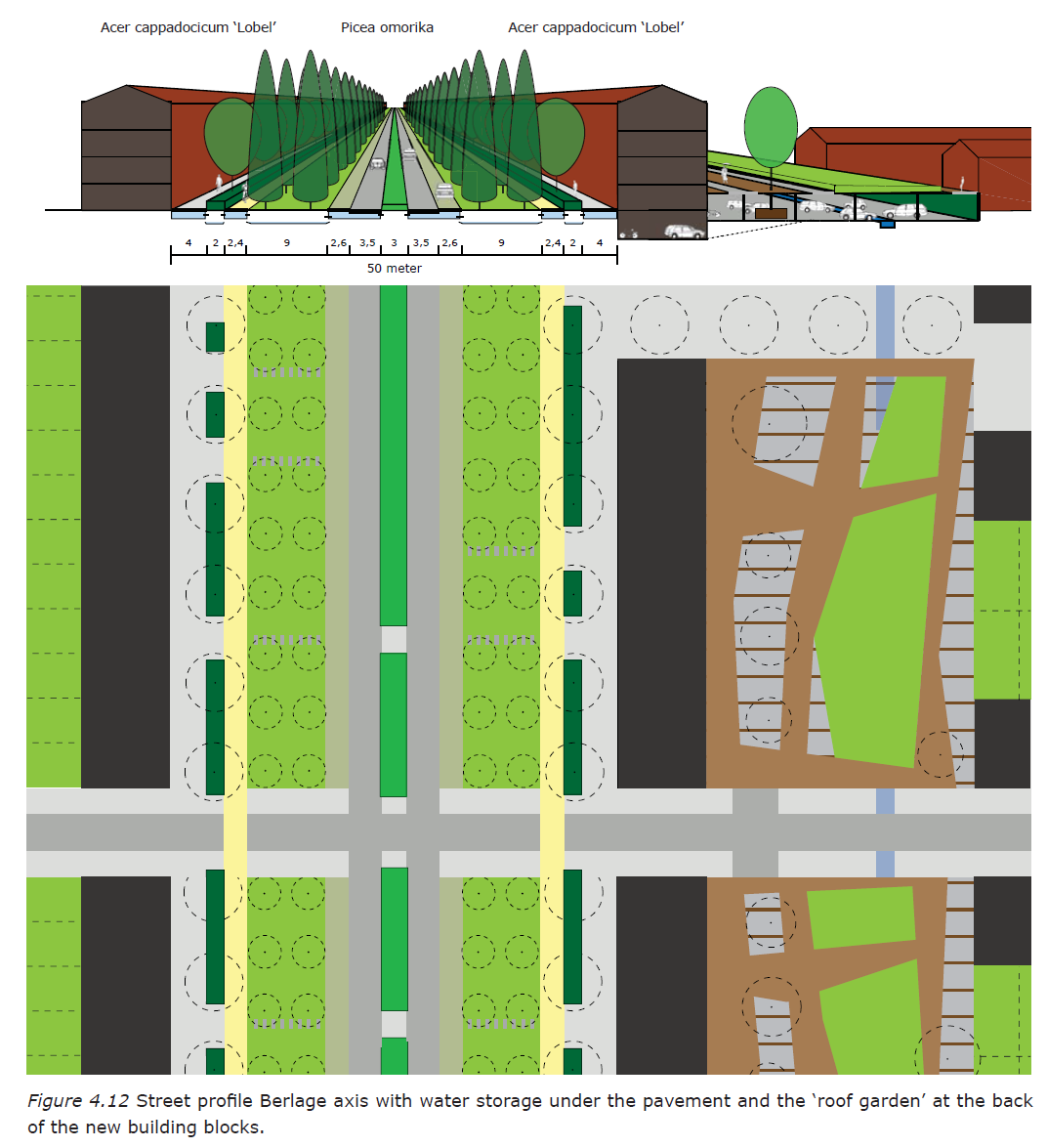Student: L. Kleerekoper
Mentors: Marjolein Pijpers-van Esch, F.O.T. de Josselin de Jong, T.B. Salcedo Rahola
Program: MSc Urbanism
Graduation date: 03-07-2009
Abstract
The Urban Heat Island (UHI) effect assumes that cities accumulate heat and are consequently warmer than their peripheries. During the evening and at night, when the countryside has cooled down and the city retains the heat accumulated during the day, the difference is at its maximum. Global climate change brings a temperature rise in the Netherlands of 0.9 to 2.9 °C in 2050. Together with the increasing densification and ongoing growth of cities the UHI effect will increase in the following decades. Increasing temperatures in cities have an effect on health , economic and environmental aspects. The problem is: how to quantify these effects? How many degrees can we tolerate in cities? What is the best strategy to cope with heat? These are actual questions asked by municipalities. They are becoming aware of the necessity to prepare the urban environment for future climate change. This graduation project aims to make a start for tackling the UHI issue by providing useful and clear information for urban designers and policy makers.
Subject
urban heat island
design principles
water
vegetation
adaptation
mitigation


